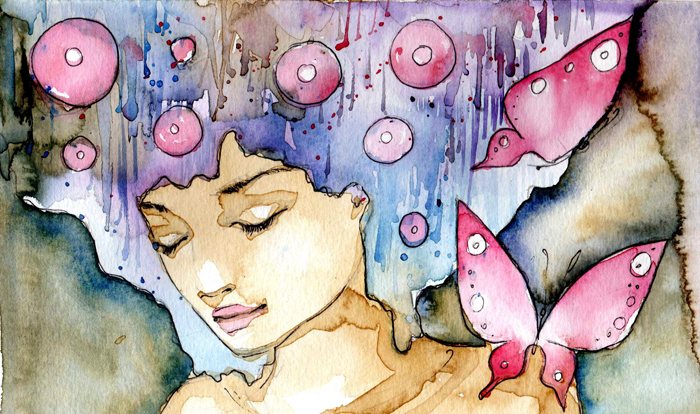
Regret is the feeling we experience when we look at a past event that didn’t turn out the way we wanted and wish we had made different choices or we look at our life and wish we had pursued a different (career, romantic, personal, etc.) path. One is specific to a situation and the other is more broad, both can cause us real and present agony.
My own and greatest experience of regret comes from not listening to my intuition when a medical professional dismissed my former husband’s extraordinary headaches as tension related. I knew that didn’t feel right, but I chose to believe the doctor instead of myself. My husband suffered a ruptured brain aneurysm. The searing pain and guilt I felt persisted for more than a year.
Thankfully, not all regrets are as intense. In my coaching practice, I work with people who constantly lament not getting a specific degree, making a certain investment, or letting “the one” get away. Though these regrets are not life threatening, all regrets have the potential to become life-sapping.
Three important things to know about regret:
1. Regret is a healthy emotion. One of the symptoms of being a sociopath is the inability to feel regret. See your regrets as a confirmation of emotional normalcy.
2. Regret is universal. Though it may feel as though you’re the only one who suffers from wishing you’d done things differently, you aren’t. The world is full of people with regrets. This doesn’t mean you should nurture your feelings of regret. It means you aren’t alone.
3. Regret is valuable. Within every experience of regret is wisdom or a lesson that can be used to make your future better. For example, I trust and rely on my inner-knowings now and it supports me in living well.
Here are some tips to help you process regret and use it to create a better life:
• Express it. Get clear about what you regret. Write it down so you can see exactly what you’re dealing with. Often the act of putting something on paper will give you a bit of distance and enable you to look more objectively at what you’re regretting.
• Accept it. Though you may never love your regrets, you will gain great power when you stop resisting them and accept them as done and over with. It is what it is. Accepting your regret means that you are no longer taking sides within yourself or obsessively rehashing what you could have done differently. Every moment invested in chewing over the past is a moment stolen from the present.
• Learn from it. Search for the wisdom and lessons that your regrets contain. What quality or action would have changed the outcome of what you regret to something desired? For example, if being more kind, spontaneous, diligent, or thorough would have shifted the event, then work on becoming more of that quality in your present life.
• Make amends. If there is something you can do (reach out to heal a relationship, make restitution) to improve a situation, do it. You’ll feel better.
• Forgive yourself. Non-forgiveness is holding on to negative thoughts about ourselves, another or an event. Perpetual guilt and non-forgiveness of ourselves does nothing to improve a situation. It does not atone for a wrong or make anything right. It only robs us of present joy and the power to create a better future. Acknowledge that in every moment you’ve done the best you could with what you knew and had. Now that you know better, you’ll do better in the future. Release and forgive yourself. If you can’t do this on your own, seek the help of a counselor or clergy. You deserve this.
• Get present and focus on where you’re going. Imagine flying a plane to the next destination in your life while sitting in the pilot’s seat facing backward. That’s what we’re doing when we spend the present focused on the past.
• Embrace possibility. There’s a pervasive western myth that the best of life happens in youth. Research proves this just isn’t true. Seniors are the happiest of all. We live in a world of possibility. Romance, professional success, health and joyful living isn’t governed by age. It’s governed by attitude. Let go of the past and instead of imagining all the things that could have turned out differently back then, use it to imagine all of the wonderful things that CAN actually happen in the future. What you focus on grows. You’ll begin to notice opportunities and relationships that support your desire.
• Take a lesson from the dying. Palliative care nurse, Bronnie Ware, spent years caring for dying people. In her book, The Top Five Regrets of the Dying – A Life Transformed by the Dearly Departing, Bronnie shares that the number one regret of the dying is: “I wish I’d had the courage to live a life true to myself, not the life others expected of me.” Wherever you are, no matter what has occurred it’s not too late to learn from this, the greatest of all regrets, and live the rest of your life honoring your truth.
~ Cynthia












